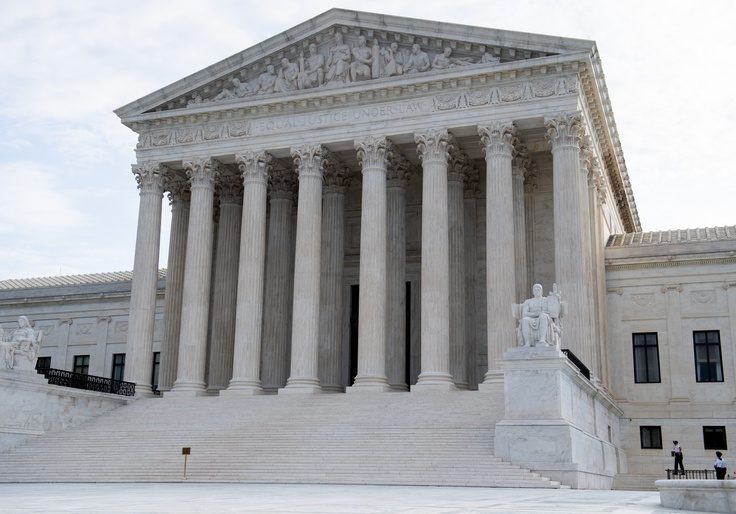The Supreme Court on Monday rebuffed a request from House Democrats to speed the process for restarting their legal fight to obtain President Donald Trump's financial records.
The decision means that the chances of congressional investigators obtaining Trump's financial records ahead of the November election, which were already remote, are even lower. Justice Sonia Sotomayor was the only member of the Court to note her dissent.
The Supreme Court dealt a blow to the House earlier this month when it sent legal disputes over its subpoenas to Trump's accounting firm and partner financial institutions back to lower courts for another round of litigation. The Court's decisions take effect 25 days after they come down. House Democrats on July 13 asked the Court to put the ruling into effect immediately, or in legal parlance, "issue the judgments."
In legal filings, House lawyers emphasized that every day between now and January 2021 matters a great deal for their efforts to enforce their subpoenas. That's because the House is dissolved and reconstituted every two years after federal elections, meaning the contested subpoenas will die when the current Congress ends on Jan. 3. What's more, congressional Democrats say they are eager to enact legislation protecting the integrity of November's general election.
"Immediate issuance of this Court's judgments would accelerate the proceedings in the lower courts so that the committees may obtain the materials necessary to undertake any needed legislative reforms as quickly as possible," congressional lawyers told the justices.
Outside lawyers for President Trump said the House didn't seem to be in a hurry at earlier phases of the case.
"The committees voluntarily stayed enforcement of the subpoenas for more than six months as these cases made their way through the lower courts," Trump's response to the House's request reads. "They should not be heard to complain that the proceedings are moving too slowly."
Chief Justice John Roberts, however, went the other way in a different case involving New York County district attorney Cyrus Vance, who obtained a grand jury subpoena for Trump's financial information. The Court sided with Vance on July 9 and rejected arguments that the president is "absolutely immune" from state criminal proceedings while in office. Roberts agreed to put that decision into effect on Friday, rather than wait the usual 25-day period.
Vance cited a looming statute of limitations as the reason for his request. Quick issuance of the judgment would minimize "any risk that criminal conduct will go unpunished," he wrote. The president's lawyers did not oppose Vance's request.
The Court did not give detailed reasons for either decision, as is typical of such orders.
